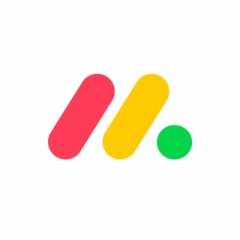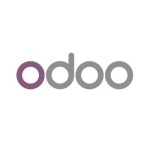What is our primary use case?
At the communication office, we use it to manage all our topics, including what topics we have to make, Facebook ads, our social media schedule, project management, and so on.
We are a team of 30 people working in communications for a city. We have one folder for each team and we can interact without emails about every single subject we have. We also share all our documents on Monday: communication plans, reporting, data, and so on. We manage the city newspaper on Monday as well, including who will do what, when, about what, etc.
How has it helped my organization?
It reduces the number of emails we exchange. It also permits us to keep an eye on what our colleagues do in a global way. For example (the example of my service), we can follow the evolution of a task to know when we will receive a final document.
In terms of social media, we have one board. On this board, we have one item by post and we can skip to a calendar view, which is very useful. On top of that, we can also exchange with our colleagues' pieces of information, links, and pictures we need to create social media posts. All the solutions we had before are now in one platform.
What is most valuable?
The most valuable aspect of the solution is the fact that we can make the tool as we want, in the way it is the most useful for us. This customization is a strength. It adapts to everyone. For example, for social media, we need a calendar and now we have one. For the magazine, we need a big table and now we have one.
It's also true for each single person. We have group tables yet we also can create one only for one person. It makes it easier to manage the orgzanization of the tasks we have to manage, with deadlines, documents, reminders, links, pictures, etc.
What needs improvement?
In terms of synchronization, maybe some tools can be more synchronized. For example, with Facebook Ads, we can ad campaigns and still, everything is not synchronized and is not as useful as the Facebook ads tool if we want to make reports.
Also maybe it could be useful to make a better connection between tables. When we write something in one item, it doesn't synchronize with the one linked in another board.
It could be interesting to have Microsoft Teams tools and also Outlook email on it and more integrated.
For how long have I used the solution?
I've used the solution for more than a year.
What do I think about the stability of the solution?
It could be improved in terms of stability. We often have problems with bugs and slow service.
- The website could be slow and nothing is loading although we refresh and clean the browser cache
- We write comments, change status or other content and when we refresh, nothing appears. So we have to try many times before it’s ok.
- The time zone change although we didn’t change it in parameters.
- To download a zip file from “folders”, sometimes it’s charging but nothing happens
What do I think about the scalability of the solution?
There is often scalability, which is a good thing.
How are customer service and support?
I'd prefer to have online support in French.
How would you rate customer service and support?
Which solution did I use previously and why did I switch?
We used to use Trello. It was not as useful as Monday. We switched as the service decided to. We adapted our way to work to fit with Monday.
How was the initial setup?
It's quite complex to set up, however, honestly, if each employee takes half a day to test and try everything, then it's quite easy to use.
What was our ROI?
I did not evaluate ROI due to the fact that we do not sell products.
What's my experience with pricing, setup cost, and licensing?
I don't manage the license.
It's a powerful and easy tool to work with in teams in order to centralize and reduce email.
Which other solutions did I evaluate?
I was not part of the decision-making team!
What other advice do I have?
It could be interesting to integrate a publication tool for social media.
Which deployment model are you using for this solution?
On-premises
Disclosure: My company does not have a business relationship with this vendor other than being a customer.


















